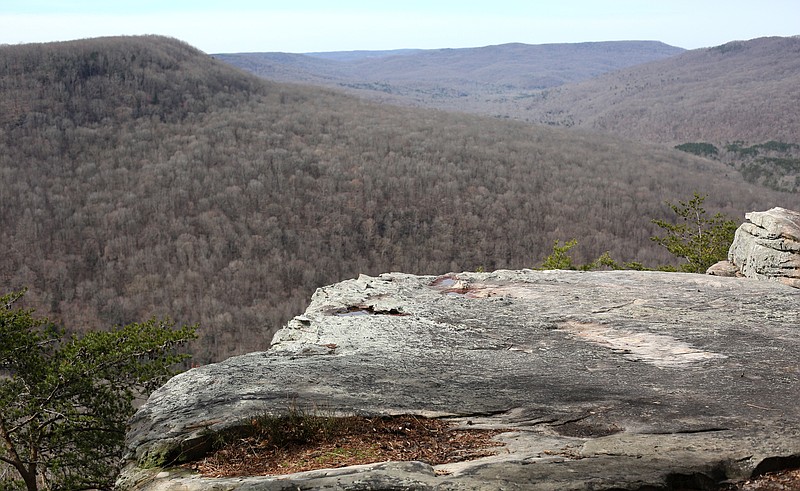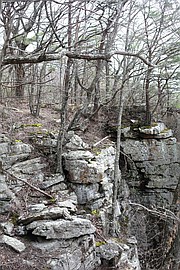There is broad support across the political spectrum for protecting wilderness areas in the Southern Appalachian Region, according to a new University of Georgia study conservationists hope will be used by lawmakers to expand and maintain the most protected federal lands.
The report's authors say it's likely the first in-depth study looking at the public perception of just the 3.7-million acre Southern Appalachian Region - which consists of nearly 50 wilderness areas in Tennessee, Alabama, Georgia, North Carolina, South Carolina and Virginia. More than half the U.S. population lives within an eight-hour drive of the region.
"The takeaway, especially in an era of pretty deep partisan divide, is just that message that the value of wild places is not really a partisan issue when we look at conservation," said Sam Evans, Leader of the Southern Environmental Law Center's National Forests and Parks Program.
The study sampled 1,250 individuals in the Charlotte, North Carolina; Atlanta; Knoxville; Greenville-Spartanburg, South Carolina; and Chattanooga metropolitan areas. About 51.5 percent of respondents identified as conservative while 27.5 percent said they were liberal and 21 percent said neither.
The results show widespread support for protecting more wilderness area, expanding existing areas and seeing more areas managed as designated wilderness - the highest level of land protection by the federal government. Most of the participants - 88 percent - said they support the preservation of these areas so they will always exist in their natural state. And 88 percent of those who lived in Chattanooga and had visited a wilderness area thought more wildlands should be protected.
There was little difference in core beliefs regarding wilderness across political parties in any of the dozens of questions that were asked.
The strongest level of agreement was with the statements "It is important to balance human impacts on the environment by protecting areas where natural systems can be unimpaired" and "Plants and animals have as much right to exist as humans."
Most said they would write a letter to their congressional officials to support the protection of wilderness. But there was less agreement that participants would attend town hall meetings to support the protection of wilderness or would financially support efforts for the protection of wilderness.
"I was kind of surprised in a positive way," said UGA Associate Professor of Parks, Recreation and Tourism Management Kyle Woosnam, who was a researcher for the study. "I was struck by how folks across the political persuasion understood the benefits of these areas."
Conservationists say such data is becoming increasingly more important.
"It's hard to track down this information; we didn't think anyone had looked at this in quite a while," said Jill Gottesman of the Wilderness Society. "All of these trends are increasing, and we know that in our region there are more people who are putting more pressure on protecting areas of all types."
The study was conducted by the university's Warnell School of Forestry and Natural Resources to gauge perceptions and attitudes concerning wilderness, the degree of experience residents who had visited wilderness areas in the last five years experienced, and demographics and general beliefs about the environment. It was done at the request of the Wilderness Society and Southern Environmental Law Center, which plan to use the report in future decisions concerning the management of wilderness areas.
Now, the report's authors hope their findings will inform legislators and people who have an interest in wilderness.
"We really want politicians to see there is support from both sides of the aisle," Woosnam said.
The study also found:
» People most often visit wilderness areas for hiking, photography, swimming and camping.
» Word of mouth was the top way people found out about wilderness areas.
» Participants expressed a high level of emotional attachment to wilderness areas they had visited.
» The protection of water quality and wildlife habitat were believed to be the most important benefits of wilderness.
The full study can be viewed at timesfreepress.com.
Contact staff writer Mark Pace at mpace@timesfreepress.com or 423-757-6659. Follow him on Twitter @themarkpace and on Facebook at ChattanoogaOutdoorsTFP.

